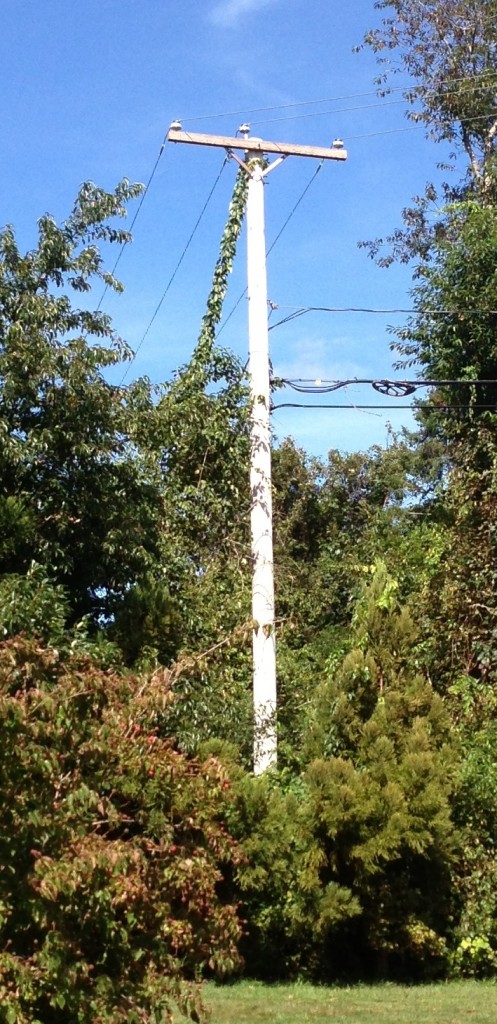This past Field Day saw the GOTA station having difficulty due to horrible RFI at the Glen Park Pavilion. The noise was so bad that it even prevented weak signal satellite work near the power lines on 144/440 MHz. With an upcoming JotA event in October, WA1ABI, John King, offered an instructional class in RFI finding techniques using VHF/UHF AM receivers with directional antennas, a KX3 with a rubber duck antenna, and a ultrasonic leak detector.
The RFI levels were high enough, even on 2 meters, that directional antennas were still yielding multiple peaks, and the lack of a RF gain control on the VHF gear further hindered the process. On the other hand, signal levels were more reasonable at 70 cm, and a rather pronounced peak was observed in the direction of one particular telephone pole.
Other participants were “walking the line” with the KX3 set to 6-meter AM, and independently established a rather strong signal level from the same pole. John King then brought out the mystery weapon — a ultrasonic receiver that detects sounds in the 36-46 KHz range and converts them to audible signals (a hetrodyne receiver operating a ultrasonic frequencies). Sure enough, when John pointed his parabolic dish at the pole, he could easily detect arcing, and he observed ivy was growing up the pole’s guy wire and right into the MV 3-phase lines. Fascinatingly enough, a much stronger arcing noise was actually coming from a pine tree that was growing at the base of the power pole. Moving the guy wire could cause the noise to go away or come back.
National Grid will be called in next week to fix the issue, and a second RFI party will check to see if the noise is improved.
Thanks to John WA1ABI, Willy W1LY, Jack K1JG, Rich N3RWB, Dave KC1AAA, Dirmid KB1ZZY, Rob KB1ZZU, Julian N1UHP, and Bob WB4SON who participated in the hunt.

